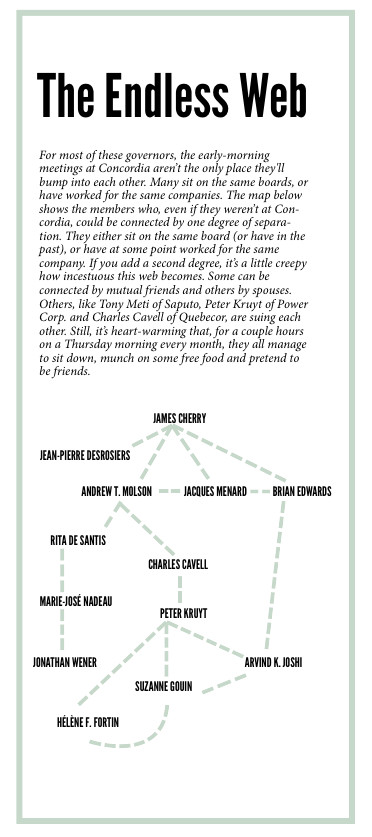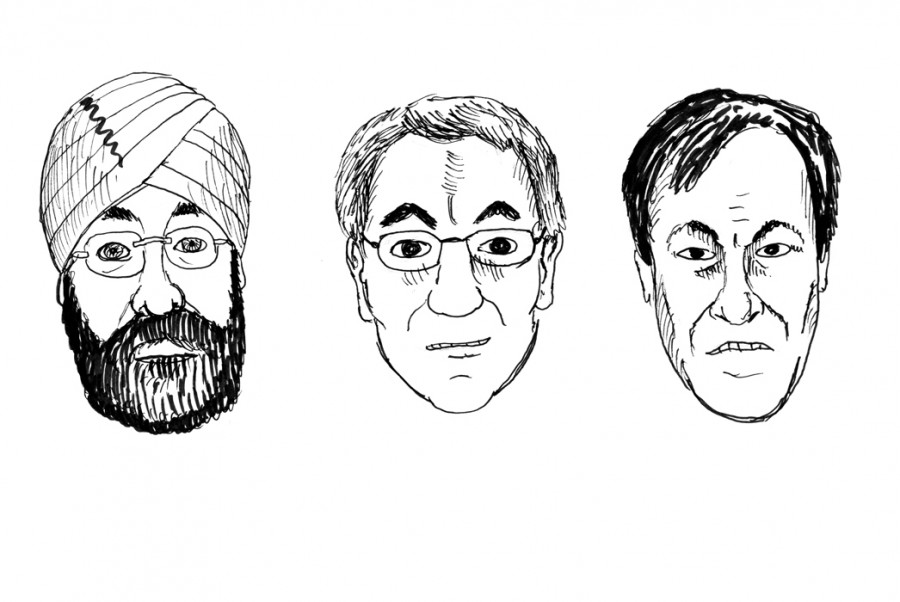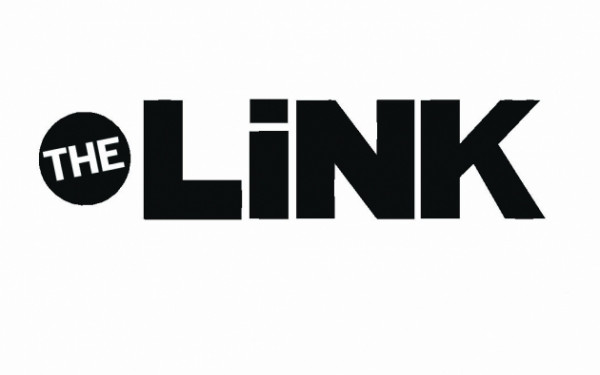Concordia Bog
A Wretched Hive of Scum and Villainy
Whether it’s Peter Kruyt shouting down student reps, Rita de Santis peacocking about the board room and calling students “losers” or Robert Barnes telling students to stop “pissing people off,” meetings of Concordia’s Board of Governors are rarely dull.
But The Link was curious. These governors are volunteering their time and efforts, for no obvious gain—and in the process they gather no small amount of bad press. So why do it? What kind of people are on the Board?
We were a little surprised. Some of them have done great work. Others, like the three profiled below, have definitely not.
Seriously, who thought this was a good idea?
Peter Kruyt:It hardly seems fair that a vice-president of one of the most influential corporations in Canada should suffer the indignity of being Google-ranked below a satirical Twitter account and an open letter calling for his resignation. At Concordia, life is tough for Peter Kruyt.
Outside of the university, though, things look good. Since 1996, he’s been a VP at Power Corporation, a massive Canadian conglomerate which controls insurance and investment firms, owns newspapers (including La Presse), a mining company, a hollowed-out volcano in the South Pacific and suppliers of natural gas and construction materials.
Apart from their bi-weekly calls asking this reporter to renew his subscription, La Presse is a great paper. The same adjective can’t be applied to most of Kruyt’s other businesses which, through a Human-Centipede-esque chain of holding companies, are tied to Power Corp.
Power Corp. and its CEO Paul Desmarais are the largest shareholders in French oil company Total SA. For most of us, international sanctions might be a good reason not to do business with a country. But that’s why most of us aren’t making millions running an oil pipeline into Myanmar. Through a deal with the military dictatorship that recently machine-gunned protesting Buddhist monks, Total’s pipelines carry most of the country’s oil and gas exports.
Total leveraged that same regard for human rights when it allegedly sent almost $2 billion in bribes to members of Saddam Hussein’s government to secure oil contracts.
The company is facing criminal charges in France for the affair. Until the US introduced sanctions in 2010, the company was also a major investor in Iranian oil, and has invested billions in the Alberta tar sands.
Kruyt is an alternate director on the board of CITIC Pacific, a holding company which is 58 per cent owned by the Chinese government and has been repeatedly investigated for illegal trading. He’s also the chairman of the Canada China Business Council, an organization which lobbies for increased trade with China, despite the country’s sketchy human rights record.
Michael Novak: Kruyt will be leaving the board after his term ends in June, but the board will still have at least one member whose company does business with military dictatorships. Executive VP of SNC-Lavalin, a large Canadian engineering and construction firm, Michael Novak oversees the company’s defence contracting arm.
Driving around Montreal, you’ll see plenty of SNC-Lavalin projects. The huge construction company engineered the Bell Centre, refurbished the Jacques-Cartier Bridge and is working on the massive McGill superhospital in Westmount.
SNC deserves congratulations for the home of the Habs—one of a handful of Montreal landmarks that isn’t yet a crumbling wreck. Presumably, the $271-million prison the firm was building for now-deceased Libyan tyrant Moammar Gadhafi would have been built to the same high standards, if it weren’t for the recent revolution in that country.
Given the political situation in Libya, a prison might not have seemed like a great idea. But the company wasn’t worried, SNC-Lavalin CEO Pierre Duhaime told Maclean’s, because Moammar’s son, Saif—who was heavily involved in the project—was “very vocal in terms of respecting human rights.”
If you recognize Saif’s name, it’s either for his moderately successful art career, or because he’s wanted by the International Criminal Court for alleged crimes against humanity.
“He’s in a war and he has to defend his family’s interests,” explained Duhaime. The International Criminal Court, which says Saif is responsible for shooting civilian protesters, apparently disagrees.
In addition to the prison, the company also reportedly provided a bodyguard for his younger brother Saadi Gadhafi, the head of Libya’s special forces and a fugitive from Interpol. The company recently fired two executives in connection with an alleged plot to smuggle members of the Gadhafi family out of the country.
Baljit Chadha: It wasn’t the cocaine, the superhuman quantities of alcohol or the cigarettes that got him. When Warren Zevon sang about getting bad news from his doctor (“Let me break it to you, son, your shit’s fucked up”), it was mesothelioma, a rare cancer caused by asbestos exposure.
This nasty stuff is more than the reason no one will ever get to see one of the greatest songwriters of all time play live again, however. The carcinogenic construction fibre will also kill about a quarter of a million people by 2029 in Western Europe alone, according to a 1998 study published by the British Journal of Cancer.
When he’s not attending Concordia Board of Governors meetings, businessman Baljit Chadha has kept himself busy fighting for the right to export this poison from his company’s mine in central Quebec. A member of the Board since 2002, Chadha is president of Balcorp, which owns a mine in Asbestos, QC.
Until the mine shut down last year—this is an industry that doesn’t really encourage repeat customers after all—Balcorp was doing a brisk business selling the slow-and-horrible-death-causing mineral to developing countries.
He was on the receiving end of a rare, personal smackdown from the World Health Organization, who refuted his repeated claims that chrysotile asbestos—the kind he exports—is safe in small amounts. The European Union has banned all use and production of asbestos and the Canadian Medical Association says Canada should do the same.
Last year, facing increasing activist pressure for her ties to Balcorp, Chadha’s wife, Roshi, resigned from her positions on the boards of McGill University, St. Mary’s Hospital and the Canadian Red Cross. Baljit Chadha is still working to resume asbestos exports.

Rita de Santis, Charles Cavell, 1999:
-The Euro was established.
-Napster and MSN Messenger were created.
-Shakespeare in Love won best picture.
-Nunavut was created.
-First episode of Family Guy.
Peter Kruyt, Brian Edwards, 2000:
-The Millenium Bug didn’t happen.
-Bashar al-Assad and George W. Bush elected.
-First episode of Dora the Explorer airs.
-The ILOVEYOU computer virus hits.
-Putin elected president for first time.
Howard Davidson, 2001:
-Wikipedia is founded.
-9/11 and invasion of Afghanistan.
-George Harrison dies.
-Enron goes bankrupt.
Baljit Chadha, Suzanne Gouin, 2002:
-Whoopi Goldberg hosts the Oscars.
-Elizabeth Smart kidnapped.
-Kelly Clarkson wins American Idol.
Tony Meti, 2004:
-Leafs play their most recent playoff game.
-Series finale of Friends.
-Saddam Hussein goes on trial.
-Southeast Asia tsunami
Bram Freedman, Concordia’s VP of Institutional Relations and Secretary General, would not comment on any of the board member’s business interests.
In an interview with The Link he noted that June 30 will mark the end of both Chadha and Kruyt’s terms on the board. And, he explained, if individuals have concerns about certain members, those may be discussed either during the nomination process at the Governance and Ethics Committee, or at the Board itself.
All reasonable. It’s not admin’s fault that we have such unsavoury characters on the Board. But what was the Governance and Ethics Committee thinking when these people were nominated?
If the members of that committee need someone to hold their hand and explain why exporting deadly poison to developing countries or building prisons for the man called “the mad dog of the Middle East” is a bit morally questionable, they should just call it a day, head home for a warm mug of Pepsi and look for a job where they control less public money.





_600_375_90_s_c1.jpg)
_900_642_90_600_375_90_s_c1.jpg)
_600_375_s_c1.png)